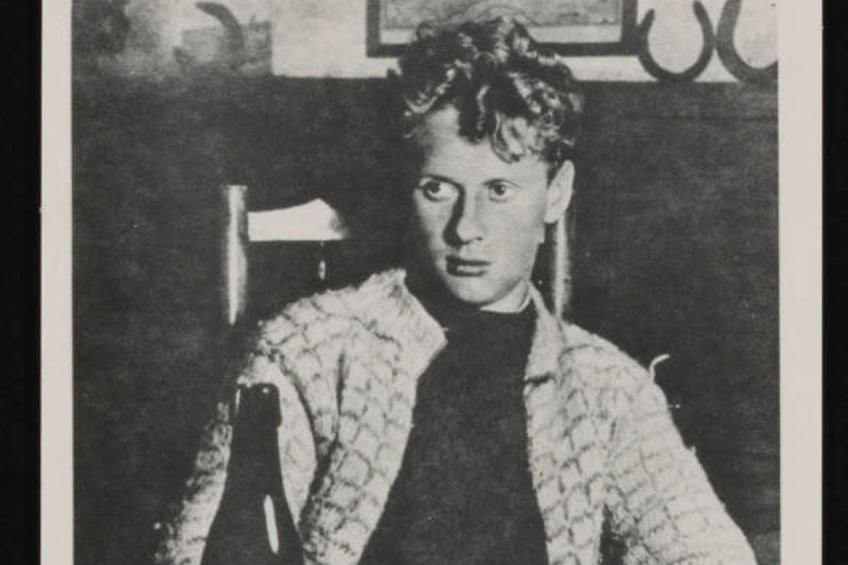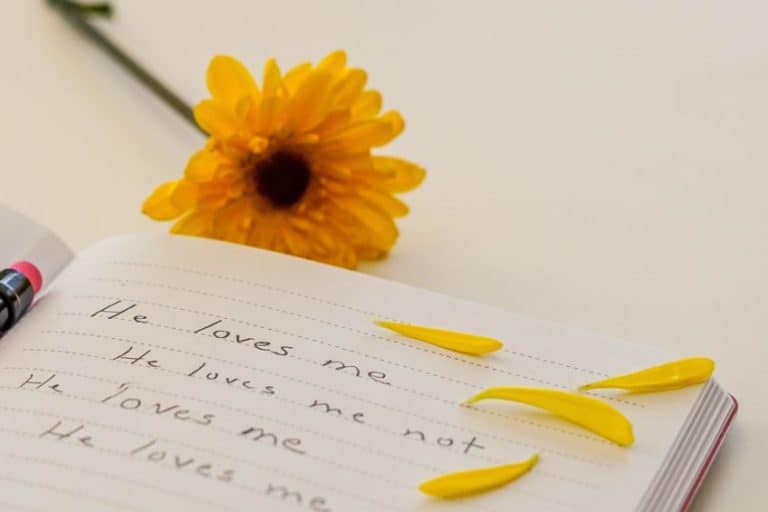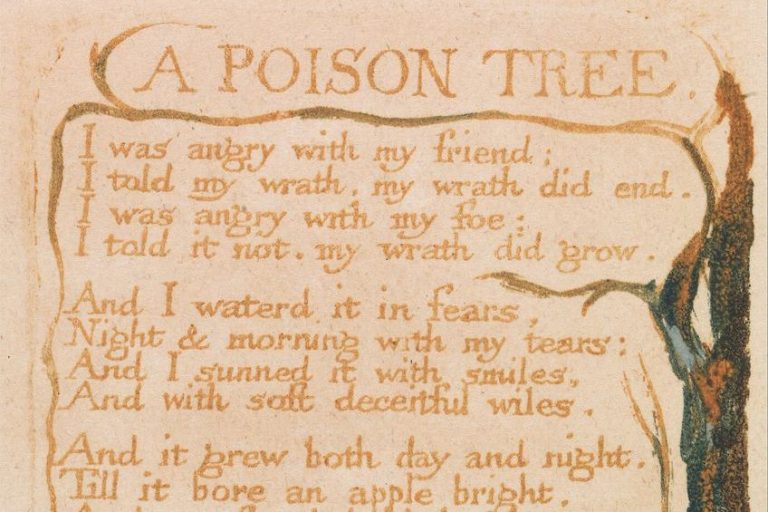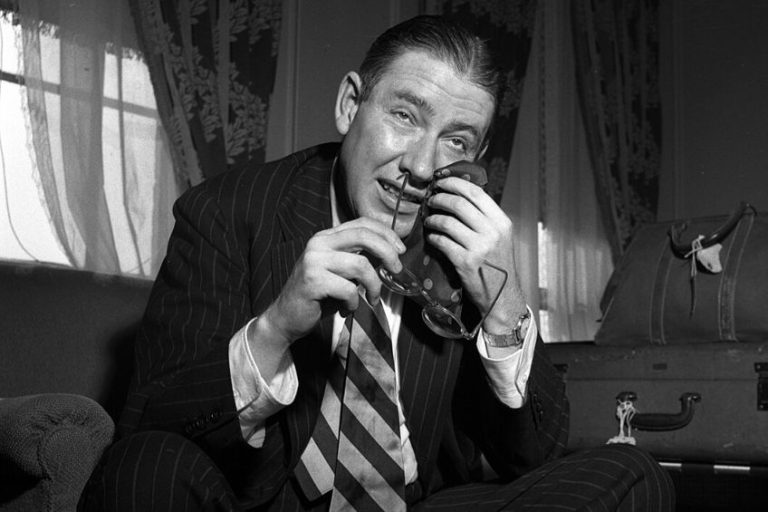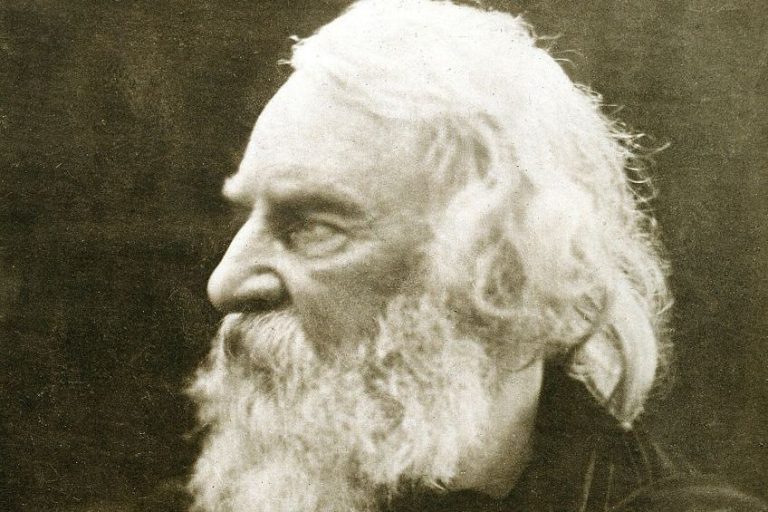How to Start a Poem – A Beginners Guide to Getting Started
Starting a poem can be a difficult thing. That first line is an elusive thing at times. However, you can learn more about poem starters and how best to write them yourself. That will be our focus for today. We are going to have a look at what a poem starter is in the first place, some of the different ways to start a poem, what kinds of effects they may produce, and, lastly, a few examples of poem starters so that we can go over a few real-world examples of first lines in poetry. This should be a good time for those who want to up their game when it comes to poetic composition. If that sounds like a descriptor for yourself, hang around and learn some more!
Table of Contents
How to Start a Poem
How do you start a poem? That is a very difficult question. There are technically many ways to start a poem, but there is no actual definitively correct way to start one. The reason that this is the case is because different poems have different goals. You could want to grab someone from the start with something provocative or you could have a slower burn. Neither of these is correct or incorrect, and they are also not the only way to do things. However, for those who would like to know how to start a poem, I will go over a number of different ways in which that can be done. However, just remember that there are loads of different ways to do it and that even this article will not give you the full breadth of what is possible with poem starters, but it should be a good… starter. I’ll leave now.

How to Start a Poem Summary Points
Okay, so I didn’t leave, but I did jump into the summary section of this article. A helpful summary can be very beneficial. It’s useful for those who just need a handful of pointers and it’s helpful for anyone who wants some background information before we get into it properly:
- There are numerous ways to start a poem. There’s no one way to start a poem. They can be started with questions, commands, statements, or various other opening gambits. However, the start of a poem is often seen as a very important thing because it’s the first thing the reader encounters.
- There is no correct way to start a poem. While there are many ways to start a poem, there is no right or wrong way. If you want to use a slow-burn approach in your poem, you can do that. If you want to commit to the opposite of that, do so. Nothing is ever perfect in art, but you can learn to improve.
- Poem starters often serve to pull a reader in. While different poems have different goals, poems do generally want to be read. A poem is not written to simply gather dust, even if the only one reading it is the author. However, a common goal of an opening line is to get the reader’s attention in such a way that they’ll want to keep reading.
Now that the summary is done, we can now transition into the remainder of the article. While this brief summary should be helpful, it’s far from everything you may want to know.
So, let’s see what else you might want to know.
What Is a Poem Starter?
It’s often best to start things off in a very simple way, and there really is only a simple way to look at this because a poem starter is just how a poem starts. There isn’t anything else there to discuss with regard to its definition. It would be just as easy to give a definition of something like a noun, but just because you know about poem starters doesn’t mean that you know how to start a poem. The next section will examine a few of the different ways to start a poem.

Ways to Start a Poem
The different ways to start a poem cannot be listed easily in one place, but for a certain sense of numerical enjoyment, I will discuss five different ways in which a poem can be started. However, these are very generalized, and so the best way to really understand them is to instead have a look at the examples that follow on from this section.
Furthermore, I will also explain some of the effects that can be produced with these different kinds of poem starters.
Starting a Poem With a Statement
This is likely the easiest thing to do in a text. Just open the thing with some kind of a statement. Now, a “statement” is a very broad term that can refer to many different types of things, but for our purposes here, we can see it as opening with something like a bit of description or a thought. For instance, imagine a poem that opens with a statement on the speaker’s present mental state. That serves as a way of immediately setting the scene for the poem to come. Statements can also be immensely provocative or confrontational. For instance, an opening like “I want to die” might hit you very hard right from the get-go.

Starting a Poem With a Question
While the statement opener certainly has its place, there is something very special about opening a poem with a question. A question is fundamentally enticing. You want to hear the answer, or you want to be stumped by something that has no answer. The use of rhetorical questions in poetry is an age-long tradition in poetry writing, and many have made use of it. Let us imagine a question that might immediately grab our attention, something like: “Why was I born this way?”. As soon as we are hit with this question, we start to have certain feelings. Is this going to be something depressive and dark? It certainly feels that way, but what if the next line is about self-praise rather than self-criticism?
The opening question forces us to think, and it can serve as a means of hitting us over the head with an immediate head-scratcher.
Starting a Poem With a Command
One of the most powerful ways to open a poem is by hitting someone with a command. This is immediately forceful, and it requires the reader to pay attention. The command approach to poem starters allows us to be hit with something often provocative and hard-hitting. Take a line such as this as an example: “Do not look at me”. We cannot tell from the beginning why we have been ordered not to look, but the command also serves as both a dominant display, but also something that leads to rebellion. Once we have been told not to look, we want to look. There is a kind of reverse psychology to this kind of approach, and it can result in some interesting effects.

Starting a Poem With a Literary Device
The previous three poem starters have been extremely broad, but this is a bit more of a specified variety that can actually exist within any of the above ways of starting a poem. When it comes to learning how to start a poem, making good use of literary devices from the beginning can build interest in the reader. For instance, imagine an opening line with internal rhyme, alliteration, or a hyperbolic statement.
These are not necessarily ordinary in terms of everyday language, and so their inclusion in an opening line can create a sense of anticipation in the reader.
Starting a Poem With a Confusing Idea
The last of the five ways to open a poem is the use of confusion. This does not mean that you write something that cannot be understood, but rather you might refer to things in a way that someone cannot possibly hope to understand right now. This can be by referring to something with a strange name or term, like “I want to see the chatting tree”, or by mentioning someone the reader could not know, like “Bobby did that thing again today”. This lack of clarity in what has been said will cause a reader to become curious about the absence of information, and this could entice them to keep reading.

Some Examples of How to Start a Poem
It’s now time for us to have a look at a few actual examples of first lines. I have always taught my students that learning from the greats can be a good strategy for learning, and that is the case here. We are going to look over five different opening lines from poems to see what makes them stand out so well. These are all famous poems and so the opening lines tend to be famous too. Before we jump into it, it may be beneficial to state that there are many poems in which the first line is also the title. This has often been a common practice and is probably best known in English in the works of William Shakespeare.
So, with that out of the way, we can finally get into some of these examples to see what we can learn!
I Wandered Lonely as a Cloud (1807) by William Wordsworth
| Date Published | 1807 |
| Type of Poem | Lyric poem |
| Rhyme Scheme | ABABCC |
| Meter | Iambic tetrameter |
| Topic | Nature |
I Wandered Lonely as a Cloud is likely one of the poems with one of the best-known opening lines. However, it’s one of those mentioned above that has the same opening line as the title, so it may be a little unfair. However, this poem is considered a classic of Romantic poetry, and it explores the natural world and memory itself. The poem is generally seen as one of the greats despite the unusual reality of its initial reception when it was first published, which was quite strong criticism rather than praise.
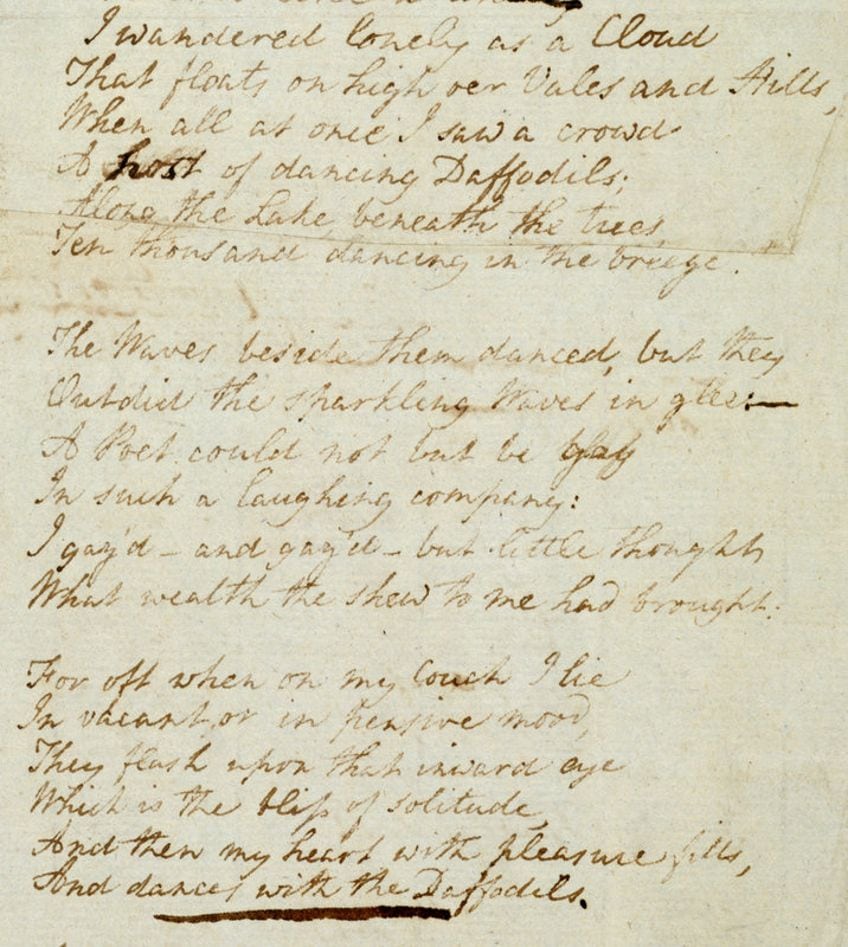
When it comes to the first line of this famous poem, which reads as: “I wandered lonely as a cloud”, we cannot help but be immediately pulled in using this descriptive simile. It operates as a literary device that causes us to create an image in our mind. We think of the way in which a cloud drifts listlessly through the sky on its own, and through the use of the casual connection created by the simile, we are able to understand how the speaker wandered through the countryside.
It is a great piece of description and it pulls the reader in.
Ozymandias (1818) by Percy Bysshe Shelley
| Date Published | 1818 |
| Type of Poem | Sonnet |
| Rhyme Scheme | ABABACDC EDEFEF |
| Meter | Loose iambic pentameter |
| Topic | The dissolution of power |
Ozymandias is a phenomenal poem, and it has become one of the most notable texts from the Romantic period. However, unlike the poem above, which was fixated on the beauty of the natural world, this poem instead discusses the way in which power fades with time. Once upon a time, the great pharaoh, Ramesses II, known as Ozymandias in ancient Greece, was one of the most powerful rulers the country had ever seen, and he ruled during a period of expansion and development. The poem focuses on a grand statue of the long-dead monarch, and how everything around that statue is desolate and washed away by the sands of time. The supposed power of the monarch is long gone from the world.

The way this narrative is presented to us is through a second-hand account of the statue. The opening line reads as: “I met a traveler from an antique land”. This opening is quite unusual in terms of poetry because the remainder of the poem is actually from the perspective of this traveler rather than from the viewpoint of the poetic subject who is the “I” in that line. We are given a rather unusual setup that allows the poem to operate with information entirely unknown to this poetic subject, and so we are able to attain said information as if it had come from some distant source.
It adds a certain sense of mystique to the proceedings.
Funeral Blues (1936) by W.H. Auden
| Date Published | 1936 |
| Type of Poem | Elegy |
| Rhyme Scheme | AABB |
| Meter | Variable |
| Topic | Grief and loss |
Funeral Blues has become a poem favored by many who are in need of assistance in saying something at a funeral. The opening line has become one of the most famous of all elegies, and the first half of the opening line even more so. This poem explores the way in which everything around you seems to come to a halt when someone has died in your life. The poem is a stunning distillation of the utmost sadness that is often felt by many in the world as they experience the kind of staggering loss that comes with losing someone who meant so much to you.

When it comes to the first line of the poem, which reads: “Stop all the clocks, cut off the telephone”, we are able to understand the sense of sorrow immediately. The first half of that, “Stop all the clocks”, has become especially famous. Everything comes to a crashing halt. Is there even a reason to continue? Should the clocks keep ticking? The reality of death is that it happens every second of every day, and the world keeps going.
The death of those you love cannot stop the clocks, because they will forever march on, but we can yearn and wish for them to cease so that our loss may be understood as the greatest that has ever occurred.
Harlem (1951) by Langston Hughes
| Date Published | 1951 |
| Type of Poem | Lyric poem |
| Rhyme Scheme | Variable |
| Meter | None |
| Topic | The experiences of African American people |
Harlem is an immensely famous poem from the American Civil Rights Movement, and also a great example of a powerful opening line. The poem explores the idea of the American Dream through the lens of African American people. All Americans are promised equality and the chance to become the best that they can become. This is the founding myth of the United States itself, and the country’s own Declaration of Independence declared that all men are created equal. However, the African American people were, at the time of its signing, enslaved, and by the time Hughes wrote this poem, they were still subject to legal discrimination.

The opening line of this poem is a famous one, and it reads as follows: “What happens to a dream deferred?” This simple rhetorical question serves as a potent setup for the remainder of the poem. The rest of the text does ask a number of other questions, but they are all related to this first one. It wants us to contemplate this problem. What are the African American people supposed to do when they have been promised the dream, but it has been withheld from them? Do they allow it to become bitter, do they let it fizzle away, or do they fight?
The poem, and that opening question, have become a rallying cry for battles for equality and civil rights in the United States, and ideas from the poem can even be heard echoed in famous speeches, such as the I have a dream speech by Martin Luther King Jr.
Do Not Go Gentle into That Good Night (1951) by Dylan Thomas
| Date Published | 1951 |
| Type of Poem | Villanelle |
| Rhyme Scheme | ABA ABA ABA ABA ABA ABAA |
| Meter | Iambic pentameter |
| Topic | Death |
Do Not Go Gentle into That Good Night is the last of the poems that will be discussed today, and it is also the last one that will have the same first line as the title. So, this poem is about death. However, it is not simply about death itself, but rather the stubborn refusal to succumb to death for as long as that is possible. The poem makes use of a highly repetitive structure to repeatedly tell us that we need to push back against the encroaching forces of death because we do not know what it holds for us. It certainly holds something, but it is an unknown. Life, on the other hand, is known, and we should cling to it.

The first line, which, as has been stated, is also, “Do not go gentle into that good night”, gives us a command. It tells us with the use of firm language that we must not go into the “good night”. The use of this expression is somewhat ironic because the speaker clearly does not see death as a good thing, but it is like an eternal sleep; it is the night. This use of a command for the first line is also at least somewhat confusing to the initial reader because we do not know what the “good night” is yet, and so we want to know why we should steer clear of something that has been described as a good thing. Why would the poet phrase it that way? The reader is drawn in and wishes to learn more, and that’s a good thing to learn how to do if you want to discover how to start a poem.
All poems have to start somewhere. Literally. That has been my goal today, to show you the different ways that a poem can start and what the effects will be thanks to the way that it has started. Furthermore, we even had a look at a number of examples together to see what could be learned from those famous instances of great opening lines. However, the only way you will really learn how to start a poem and to start a poem well is through practice! You have to just start writing some poetry. You never know what kind of great openings you’ll think of when you give yourself the chance to create!
Frequently Asked Questions
What Are Poem Starters?
This refers to the way that a poem opens. We are generally talking about the first line of a poem, but it could also refer to the first few lines or even the first stanza if it is a particularly long poem. There have been so many poems made over the generations of human existence, and so there are just as many poem starters. The way a poem starts can set the mood for the poem as a whole.
What Are the Different Ways to Start a Poem?
There are many ways that one can start a poem, but some of those that we have explored today include opening with statements, setting a scene, questions, forcing the reader to contemplate what has been asked, or commands, and forcing the reader to take notice. A poem could also be started with a device, such as a simile, or the opening can be so bizarre that it forces the reader to try and figure it out, which then incentivizes the reader to continue with the text.
Can You Learn How to Start a Poem?
Pretty much everyone in the world can learn how to start a poem. A poem starter also does not have to be the end all of the poem’s composition. Many opening lines are not all that strong, and so you can have a strong poem without a strong opening. However, a good opening can go a long way to getting your poem greater attention while being read. The best way to learn is to start writing poems and experiment with strong ways to open your poems.
Does a Poem Opener Need to Be Strong?
A poem opener does not need to be strong for the poem to be good. However, people do tend to remember opening lines far better than everything else within a text. It can also be beneficial if you decide to name the poem after the first line. This can cause the reader to better remember the opening line. Although, we could also see this as something of a cheat, but cheating can be great, can’t it?
What Are Some Examples of Strong Poem Starters?
There are many different ways to start a poem, and some good examples can be found in poems like Ozymandias (1818) by Percy Bysshe Shelley, which opens with the line, I met a traveler from an antique land or the way in which Harlem (1951) by Langston Hughes opens with the line, What happens to a dream deferred? There are so many different ways to open a poem, and there are some fantastic poem starters out there, but these are two good examples.
Justin van Huyssteen is a freelance writer, novelist, and academic originally from Cape Town, South Africa. At present, he has a bachelor’s degree in English and literary theory and an honor’s degree in literary theory. He is currently working towards his master’s degree in literary theory with a focus on animal studies, critical theory, and semiotics within literature. As a novelist and freelancer, he often writes under the pen name L.C. Lupus.
Justin’s preferred literary movements include modern and postmodern literature with literary fiction and genre fiction like sci-fi, post-apocalyptic, and horror being of particular interest. His academia extends to his interest in prose and narratology. He enjoys analyzing a variety of mediums through a literary lens, such as graphic novels, film, and video games.
Justin is working for artincontext.org as an author and content writer since 2022. He is responsible for all blog posts about architecture, literature and poetry.
Learn more about Justin van Huyssteen and the Art in Context Team.
Cite this Article
Justin, van Huyssteen, “How to Start a Poem – A Beginners Guide to Getting Started.” Art in Context. February 26, 2024. URL: https://artincontext.org/how-to-start-a-poem/
van Huyssteen, J. (2024, 26 February). How to Start a Poem – A Beginners Guide to Getting Started. Art in Context. https://artincontext.org/how-to-start-a-poem/
van Huyssteen, Justin. “How to Start a Poem – A Beginners Guide to Getting Started.” Art in Context, February 26, 2024. https://artincontext.org/how-to-start-a-poem/.


